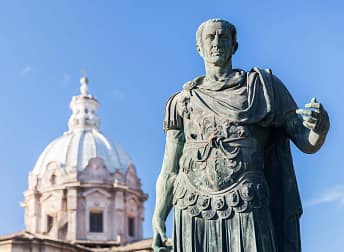The Philosophy of Julius Caesar
 Julius Caesar’s Worldview
Julius Caesar’s Worldview
Caesar’s worldview was shaped by the tumultuous political landscape of the late Roman Republic. Living in an era marked by power struggles and political turmoil, he observed the weaknesses of a system that ultimately succumbed to internal strife. Caesar’s philosophy reflected a pragmatic understanding of power dynamics and the need for stability.
His astute observation of the world around him fueled his belief in strong centralized authority. Caesar sought to bring about reforms that would address the socio-economic disparities in Rome, a testament to his vision for a more equitable society. His pragmatic approach to governance aimed at consolidating power for the greater good, even if it meant challenging the traditional norms of the Republic.
Strategies Implemented in Key Battles
Caesar’s military campaigns were a manifestation of his strategic brilliance. One of his notable strategies was the use of celeritas, or swiftness, in battle. Caesar believed in the element of surprise, often catching his adversaries off guard with rapid movements. This was evident in his lightning-fast campaigns during the Gallic Wars, showcasing an ability to adapt swiftly to changing circumstances.
The Battle of Alesia in 52 BCE stands as a testament to Caesar’s strategic prowess. Faced with a formidable Gallic force led by Vercingetorix, Caesar employed innovative tactics, including the construction of a massive fortification around the city of Alesia. This not only showcased his ability to adapt to different terrains but also highlighted his knack for unconventional warfare.
Furthermore, Caesar’s emphasis on discipline and training played a crucial role in his success. His legions were known for their cohesion and efficiency, a result of rigorous training and strict discipline. This disciplined approach instilled confidence in his troops and ensured their effectiveness on the battlefield.
Motivational Leadership in War
Caesar’s ability to motivate his troops was rooted in a deep understanding of human psychology. He knew that inspiring soldiers went beyond mere military tactics; it required a connection that appealed to their sense of duty, loyalty, and ambition.
Caesar led by example, often at the forefront of the battle. His personal courage and willingness to share the dangers with his soldiers fostered a strong sense of camaraderie. In times of adversity, he would address his troops with speeches that appealed to their patriotism, honor, and the glory that awaited them through victory.
The famous phrase “Veni, Vidi, Vici” (“I came, I saw, I conquered”) encapsulates Caesar’s concise and impactful communication style. This phrase, uttered after his swift victory over Pharnaces II of Pontus in 47 BCE, not only reflected his military triumph but also served as a powerful motivational tool, resonating with his troops and creating a sense of invincibility.
Conclusion
Julius Caesar’s philosophy, both in governance and on the battlefield, was a dynamic interplay of pragmatism, adaptability, and motivational prowess. His worldview, shaped by the complexities of the Roman Republic, led to a vision of centralized authority for the greater good. In battles, his strategies showcased a keen understanding of military tactics, marked by celeritas and disciplined forces. His motivational leadership, rooted in leading by example and effective communication, inspired unwavering loyalty in his troops.
The legacy of Julius Caesar extends beyond his military conquests; it encompasses a strategic philosophy that has left an enduring impact on the art of leadership and warfare. In a world where the balance between power and governance remains a perpetual challenge, Caesar’s insights continue to resonate, offering lessons for leaders and strategists across the ages.
Thank you for reading! Please fill out my follow form below to subscribe to my email list to never miss a blog.
https://thecourageouseffort.com/follow-me/
